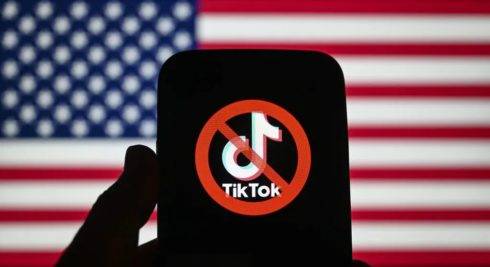In a move to safeguard their ability to express themselves freely and maintain their sources of income, a group of TikTok creators has filed a lawsuit challenging the U.S. law that could potentially ban the popular video-sharing app. The creators, including a rancher from Texas, a college football coach from North Dakota, a skincare line founder from Atlanta, and a Maryland book lover who promotes Black authors, argue that the ban is an attack on free speech and their First Amendment rights.
“Our clients rely on TikTok to express themselves, learn and find community,” said Ambika Kumar, the lawyer representing the creators. “They hope to vindicate not only their First Amendment rights but also the rights of the other approximately 170 million Americans who also use the app. The ban is a pernicious attack on free speech that is contrary to the nation’s founding principles.”
The suit follows a similar legal challenge by TikTok’s parent company, ByteDance Ltd., which contests the U.S. government’s ultimatum to divest itself of the app by January or face a nationwide ban. ByteDance has maintained that the law is unconstitutional, violating the First Amendment and representing an illegal punishment without due process or a presidential finding of a national security threat.
TikTok’s Significance for Creators’ Livelihoods
While professional content creators may not solely rely on TikTok for their income, the platform has become a crucial tool for building their brand and audience. The app’s fund pays certain creators based on performance, and it also shares revenue from products tagged and purchased through the app. However, the real value lies in the ability to gain a following and land lucrative brand sponsorship deals, where creators make videos for or promote products of brands, much like on other social media platforms.
TikTok has argued that the potential ban will stifle free speech and hurt creators and small business owners who benefit economically from the platform. The company has invested over $2 billion to isolate its U.S. operations and agreed to oversight by American company Oracle Corp. to address data security concerns.
As the legal battle intensifies, the TikTok creators’ lawsuit underscores the significant impact a potential ban could have on their livelihoods and the larger creator economy that has flourished on the platform.
TikTok’s U.S. Ban Sparks Legal Battle:crutiny Over China Ties
The App ties to China have been a subject of scrutiny under previous U.S. administrations. Former President Donald Trump attempted to force a sale of the app to an American company or face a nationwide ban through an executive order. However, his administration faced multiple legal challenges, including from content creators, and judges blocked the ban from taking effect.
When Joe Biden assumed the presidency, his administration revisited Trump’s proposed ban on the popular video-sharing platform. Despite a lobbying push by TikTok’s Chief Executive Officer, Shou Chew, to convince U.S. lawmakers, concerns over the national security threat of China potentially accessing user data and disseminating propaganda to about half of the American population prevailed. In April, Congress passed a law banning TikTok, and Biden signed it into effect.
Legal Challenges and State-Level Bans
In anticipation of the federal ban, Montana became the first U.S. state to enact a law prohibiting residents from using the TikTok app last year. However, a federal judge sympathized with TikTok’s and creators’ free speech arguments, temporarily blocking the Montana measure while legal challenges play out.
TikTok has now filed a lawsuit challenging the federal ban, citing violations of the First Amendment’s free speech protections. The company argues that the ban is an unconstitutional deprivation of due process and constitutes an impermissible burden on interstate and foreign commerce.
As the legal battle unfolds, the Justice Department has yet to comment on TikTok’s lawsuit challenging the federal ban. The outcome of this case could have far-reaching implications for the regulation of social media platforms and the balance between national security concerns and free speech rights in the digital age.
Table of Contents
Discover more from OGM News NG
Subscribe to get the latest posts sent to your email.














